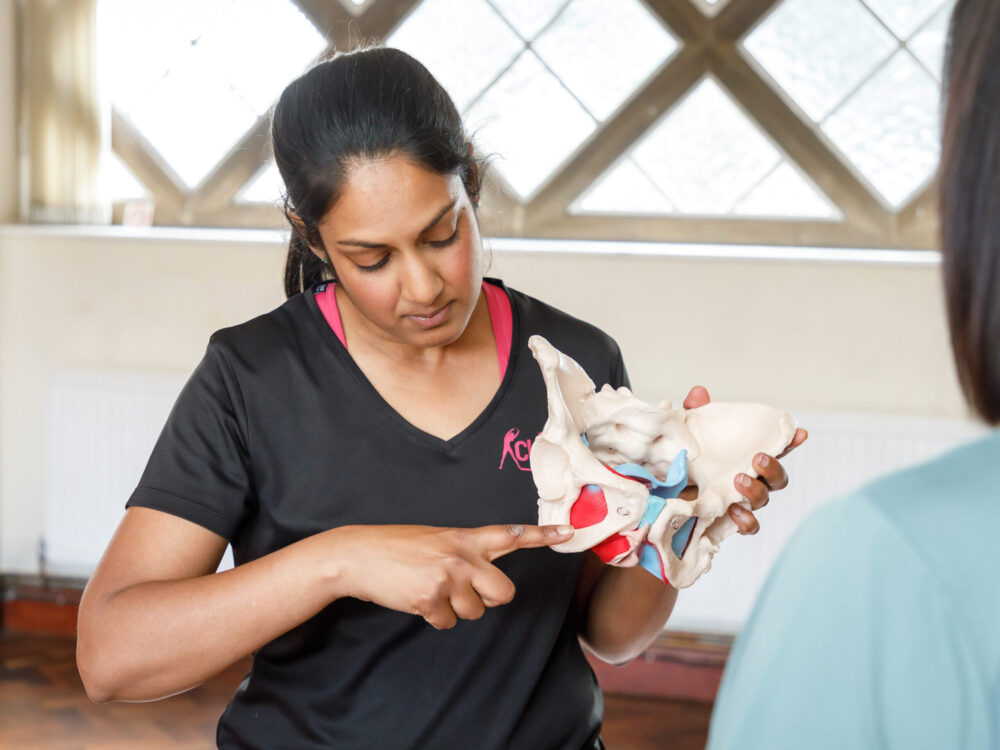
Prolapses – All you need to know
Prolapses - All you need to know

Prolapses - All you need to know
Signs You Might Have a Prolapse
Listen to Your Body
Some women ignore signs of prolapse, thinking it’s just part of getting older. 
But you deserve to feel good in your body. Here are some signs to watch out for:
- A heavy, dragging sensation in the pelvis
- Feeling or seeing a bulge in the vagina
- Difficulty emptying bladder or bowels
- Discomfort during intimacy
- Backache or pressure
A prolapse happens when an organ slips down or falls out of its normal position. This usually occurs because the muscles and tissues supporting that organ weaken or stretch. Prolapses can affect different parts of the body, especially in the pelvic area.
Types of Pelvic Organ Prolapse (POP)
This is the most common type. It happens when one or more pelvic organs drop from their usual place and press against the walls of the vagina.
Cystocele (Bladder prolapse): The bladder bulges into the front wall of the vagina. It may cause discomfort, frequent urination, or difficulty emptying the bladder.
Rectocele (Rectal prolapse): The rectum pushes into the back wall of the vagina, sometimes causing difficulty with bowel movements.
Uterine prolapse: The uterus slips down into the vagina, which can cause a feeling of heaviness or a bulge.
Enterocele: Part of the small intestine bulges into the upper vagina.
The Four Common Grades of Prolapse
Grade 1 Mild
The prolapsed organ has dropped slightly but remains well inside the vaginal canal.
Symptoms may be mild or not noticeable.
Often managed with lifestyle changes and pelvic floor exercises.
Grade 2 Moderate
The organ has descended further and may reach the vaginal opening.
Symptoms like pressure, discomfort, or a bulge become more noticeable.
Treatment may include pelvic floor therapy or a pessary device.
Grade 3 Severe
The prolapsed organ protrudes outside the vaginal opening.
Significant discomfort, pressure, and urinary or bowel problems often occur.
Surgery or more intensive treatment options might be considered.
Grade 4 Complete Prolapse
The organ is fully outside the vagina.
This is the most severe stage, causing major symptoms and often requiring surgical repair.
What Can Make a Prolapse Worse?
Living with a Pelvic Organ Prolapse POP

- Chronic straining especially during bowel movements
- Lifting heavy weights incorrectly
- High-impact exercises like running or jumping
- Persistent coughing from smoking asthma or allergies.
- Poor posture and breath holding especially during movement
- Skipping pelvic floor rehab post birth or surgery
- Abdominal exercises where you cant manage intrabdominal pressure and get doming.
- Perimenopause – as hormones change, supporting structures can become weaker.
The good news With the right support movement and education you can regain control
HCR Recovery Programme is designed to guide you back to strength and confidence without fear or overwhelm. Click here to find out more
Your body is not broken You just need the right tools to support it.
Please get in contact to find out how I can support you if you have a prolapse click here
“Signs You Might Have a Prolapse”
Listen to Your Body
Some women ignore signs of prolapse, thinking it’s just part of “getting older.”
But you deserve to feel good in your body. Here are some signs to watch out for:
A heavy, dragging sensation in the pelvis
Feeling or seeing a bulge in the vagina
Difficulty emptying bladder or bowels
Discomfort during intimacy
Backache or pressure
